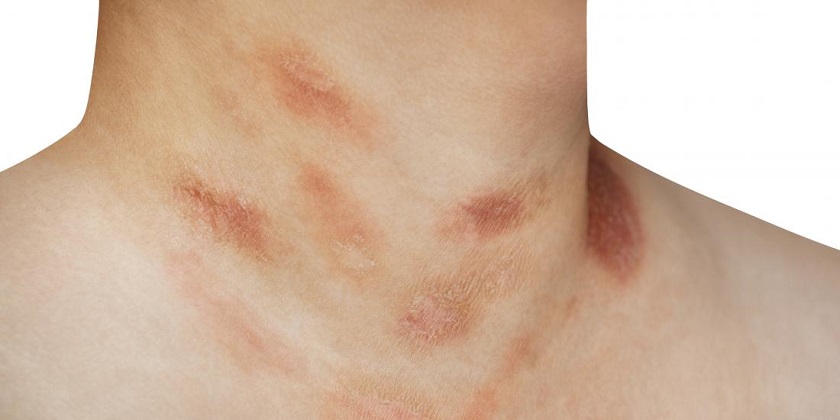- Home
- Pityriasis Rosea

What Is Pityriasis Rosea?
Pityriasis rosea, a rash that usually appears on the torso, upper arms, thighs or neck, may sound worse than it really is. The unsightly condition has a name that’s hard to say: pit-ih-RIE-uh-sis ROW-zee-ah. But it’s common and fairly easy to treat.
Though the exact causes are still unknown, doctors think it’s related to a viral infection, particularly some forms of herpes. It generally affects children, teens, and adults in their 20s, though it can appear on people of any age. It also may affect you if you’re pregnant.
It’s not contagious and, in most people, does not leave marks or scars after it heals.
How Do I Know if I Have It?
Pityriasis rosea starts with a single patch on your back or torso. That’s called the “herald patch” or “mother patch.” It’s usually oval and about 2 to 10 centimeters (a little less than an inch to almost 4 inches) in diameter.
You may find it slightly raised or rough in texture. Sometimes, you may have headache, fever, or sore throat to go along with it.
A week or two after the herald patch appears, it is joined by “daughter patches” – smaller, scaly rashes that form on your chest or back, often in the shape of a Christmas tree. In some cases, it may become itchy, especially when you exercise or it’s exposed to heat.
Because doctors aren’t certain of the condition’s origin, there’s little you can do to prevent it once you have it.
Diagnosis and Treatment
A dermatologist, a doctor who treats skin conditions, can usually diagnose it by sight. To make sure, he may order a blood test, a scraping or a biopsy. Those tests can rule out other types of skin problems, including eczema, ringworm, and psoriasis.
Pityriasis rosea usually clears up in 8 to 10 weeks. To help with the itching, your doctor may recommend:
- Over-the-counter topical medications, such as calamine lotion or zinc oxide
- Antihistamines, often taken for allergies, that in some forms also treat rashes and itching
- Taking lukewarm showers or soaking in oatmeal baths
In some cases, your doctor may want you to take prescription drugs, such as corticosteroids, which lessen itching and swelling, or acyclovir (Valtrex, Zovirax), an antiviral that counters herpes.
Some doctors may suggest you get some natural or artificial sunlight. The ultraviolet rays are believed to reduce how long you have the rash. However, light carries its own risks, such as leaving dark spots behind.
You should talk to your doctor before using any medication.

